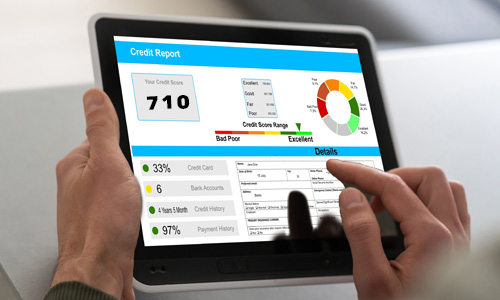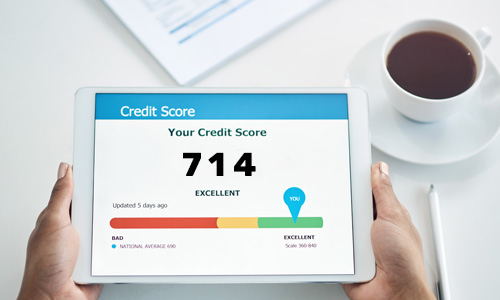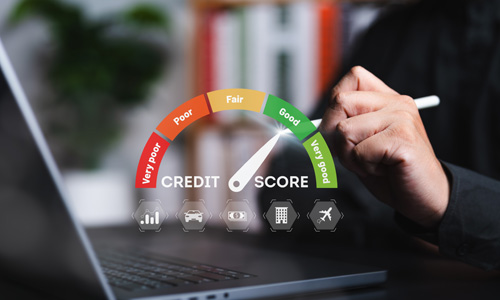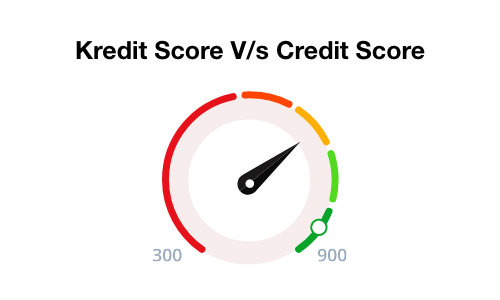Impact of Credit Score in Loan Approval Process
Your credit score determines your creditworthiness as a borrower. It is a three-digit number that symbolises your financial condition and ability to repay the debt. Credit scores play a crucial role when it comes to getting approved for credit facilities like loans and credit cards. The higher the credit score, the more the possibility of your loan application getting approved.
This article attempts to give you clarity about the role of credit scores in the loan application process.
What Happens When You Apply for a Loan?
Once you submit your loan application, the bank reviews the application and contacts al etihad credit bureau to get your credit report and credit score. Your credit history and repayment patterns are the two most important things to be reviewed in the report. If you have a low credit score, the loan application either gets rejected or high-interest rates are charged.
Your application will get approved if you have a high credit score. You can even negotiate the interest rate payable for some types of loans at your convenience. Once the documents and credit report meet the eligibility requirements, the loan is disbursed to the borrowers.
What do Banks Verify During the Loan Application Process?
The following is the information that banks look for in your credit report -
- The bank analyses the credit accounts section of the credit report to see if there are any write-off cases.
- Your repayment history is viewed to check if there are any defaults or overdue amounts.
- It also checks if you have any pending instalments to repay. If your current total monthly due is more than 50% of the monthly income, the possibility of loan approval is low.
How Can High Credit Scores Benefit You When Taking Loans?
The following are a few ways in which high credit scores can benefit you with your loan application process and loan terms -
- Your credit score represents your creditworthiness to the lender. If you manage your finances proficiently, you will have a decent or high credit score. This will help you get impressive offers on loans. But if your credit score is low, you may get charged a higher interest rate or get a shorter tenure for the loan. In the worst-case scenario, the loan application may get rejected.
- The interest rate payable is of the highest significance in the case of credit tools like loans. If you have a high credit score, you may get to negotiate the interest rate payable in your favour for loans like personal loans. It can also affect your loan repayment tenure. Lower interest rates also help you meet your monthly repayment deadlines and further boost your credit score.
- Your credit score also helps in determining your loan amount. If you have a high credit score, your application for a higher loan amount can easily get approved.
Maximum Credit Score Required for Loan Approval
The minimum credit score to get a loan in the UAE is usually set at 580. Most banks will accept your loan application if your credit score is at least 580. However, you should work on improving the score with the timely repayment of debts to get favourable loan terms. High credit scores are ideal to get the loan terms you require for any kind of loan.
Factors Affecting Your Credit Score in the UAE
It is now understood that a good credit score is crucial to get your loan application approved. Therefore, it is essential to know what factors can influence your credit score. Some of these factors are discussed below -
Paying Bills on Time:
In the UAE, your bill payment history takes up 35% weightage of the credit score calculation. Therefore, it is necessary to pay all bills on time including utility bills like DEWA and SEWA bills. Every bill paid on time builds up your credit score while missing out on the deadlines reduces it. Bill payment history also includes bounced cheques. So it is important to submit legitimate cheques to pay bills.
Credit Card Debts:
How you use your credit card builds up about 30% of your credit score. You can easily build your credit score by using your credit card responsibly. However, missing out on credit card debt repayment can decrease your credit score drastically. Besides the bill payment, another thing to consider is how much you use the credit card. Maxing out the card hurts your credit score significantly. Experts suggest that you should use only 15 to 30% of the credit card limit.
Credit History:
Your credit history impacts your credit score by up to 15%. It signifies how long you have been using loans and other credit instruments. It covers everything from your first bank account to your recent credit card. A longer credit history shows that you have responsibly handled your credit instruments for a long time and hence have significant experience.
Credit Account Diversification:
A diverse credit portfolio constitutes 10% of the credit score. If you have several, well-managed credit instruments and accounts, your credit score is likely to be high. However, it is advised to not secure multiple similar credit instruments at once, for example, credit cards. If you fail to manage one of the credit instruments effectively, your credit score will decrease.
Checking Your Credit Score Regularly:
Frequently checking your credit score can hurt it since it may depict financial instability. A few soft inquiries have a negligible effect on your score however multiple inquiries may lead to a compounded impact. It is, therefore, recommended to check the credit score only once every quarter.
Key Takeaways
- A credit Score is a three-digit number that depicts your likelihood to repay the debt. The higher the credit score the higher the possibility of your loan application getting approved.
- Once you submit your loan application to the loan department, the bank reviews the application and contacts Al Etihad Credit Bureau to get your credit report and credit score. It then reviews your credit history and repayment patterns. If you have a low credit score, the loan application either gets rejected or a high-interest rate is charged.
- When the bank checks your credit report, it looks at your credit history, bill payment history, missed payments, and current overdue. If the current debt amount is over 50% of your monthly income, the chances of your loan getting approved reduce.
- Your credit score represents your creditworthiness to the lender. If you manage your finances proficiently, the chances are that you have a high credit score and can get impressive offers on loans. But, if your credit score is low, you may get charged a higher interest rate payable or the loan application gets rejected.
- If you have a high credit score, you can negotiate the interest rate payable in your favour for some types of loans. It also affects your loan repayment tenure which helps you meet your monthly repayment deadlines and further boost your credit score.
- Your credit score is influenced by several factors including your monthly bill payment history, credit history, credit card debts, credit account diversification and more.
| Credit Score for different types of Loan | |
|---|---|
| Credit Score for Personal Loan | Credit Score for House Loan |

More From Credit Score
- Recent Articles
- Popular Articles












